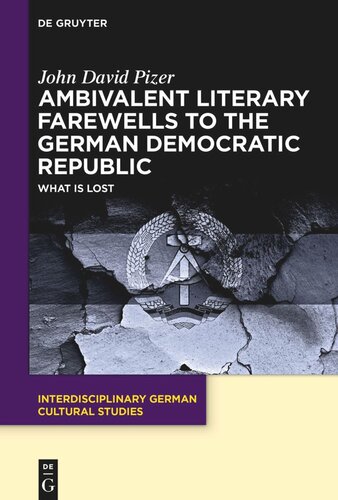

Most ebook files are in PDF format, so you can easily read them using various software such as Foxit Reader or directly on the Google Chrome browser.
Some ebook files are released by publishers in other formats such as .awz, .mobi, .epub, .fb2, etc. You may need to install specific software to read these formats on mobile/PC, such as Calibre.
Please read the tutorial at this link: https://ebookbell.com/faq
We offer FREE conversion to the popular formats you request; however, this may take some time. Therefore, right after payment, please email us, and we will try to provide the service as quickly as possible.
For some exceptional file formats or broken links (if any), please refrain from opening any disputes. Instead, email us first, and we will try to assist within a maximum of 6 hours.
EbookBell Team

0.0
0 reviewsThis study reverses the question implicit in title of Christa Wolf’s now-canonical 1990 novella Was bleibt (What remains), looking instead at what was lost during the process of German reunification. It argues that, in their work during and after the Wende, most literary authors from both East and West Germany responded ambivalently to the reunification. Many felt, on the one hand, a keen sense of loss as the GDR dissolved and an expanded Federal Republic summarily absorbed former Eastern Germany. They mourned the ideals of democratic socialism, tolerance, and internationalism that the GDR had held dear, as well as the country’s rich cultural life. On the other hand, however, they recognized that the GDR was a fundamentally corrupt surveillance state whose industry weighed heavily on the environment while failing to buoy the country’s economy. By looking at works by some of the most important authors from either side of the border, this study shows that those who unequivocally embraced the reunification were clearly in the minority.